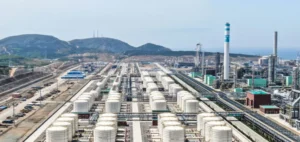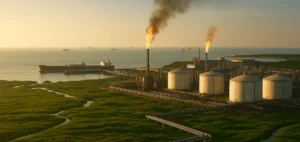The recent maritime incident involving the oil tanker Ceres 1 has drawn attention to navigation and safety practices in Southeast Asia. On July 19, a collision between the São Tomé and Príncipe-registered Ceres 1 and the Singapore-flagged Hafnia Nile caused a fire on both vessels. The Malaysian coastguard intercepted the Ceres 1, which had apparently left the scene of the accident. This sad incident is a reminder of the dangers to which tankers are exposed, such as the accident involving the oil tanker “Prestige ” off the Spanish coast.
Incident and Immediate Consequences
The collision took place near the island of Tioman, northeast of Malaysia. Rescue operations were launched immediately, although the cause of the accident remains undetermined. The Hafnia Nile carried up to 60,000 tonnes of naphtha for Cepsa, a Spanish company. The vessel was bound for the Far East, with an option to unload in Japan. The Singapore authorities stated that shipping on this busy waterway was not disrupted.
The Ceres 1 was found 28 nautical miles northeast of Tioman Island. The two tugs accompanying her were also arrested. According to the Malaysian authorities, the tanker was trying to “escape” after having disappeared from vessel tracking services before suddenly reappearing.
Background and context
Operated by China-based Shanghai Prosperity Ship Management, the Ceres 1 has previously carried Iranian crude oil, which is subject to US sanctions. The vessel is known for its consecutive crude oil transfer voyages, often between the port limits of Singapore and Malaysia and China.
The Malaysian Coast Guard stressed the importance of a thorough investigation to understand the circumstances surrounding the Ceres 1’s disappearance and possible reappearance. This raises concerns about maritime safety and business practices in the region.
Outlook and Analysis
Industry experts believe that this incident could prompt a re-evaluation of safety protocols and maritime regulations in this strategic area. As a major transit point for world trade, the region requires strict measures to guarantee the safety and transparency of maritime operations.
The incident also highlights the challenges posed by vessels carrying sanctioned cargoes. The ability of ships to disappear from tracking systems raises questions about the effectiveness of international maritime surveillance.
As the investigation continues, maritime authorities in the region will need to work together to reinforce safety measures and prevent similar incidents in the future. International cooperation will be crucial to ensure safe and transparent navigation in these waters, which are vital for world trade.




















